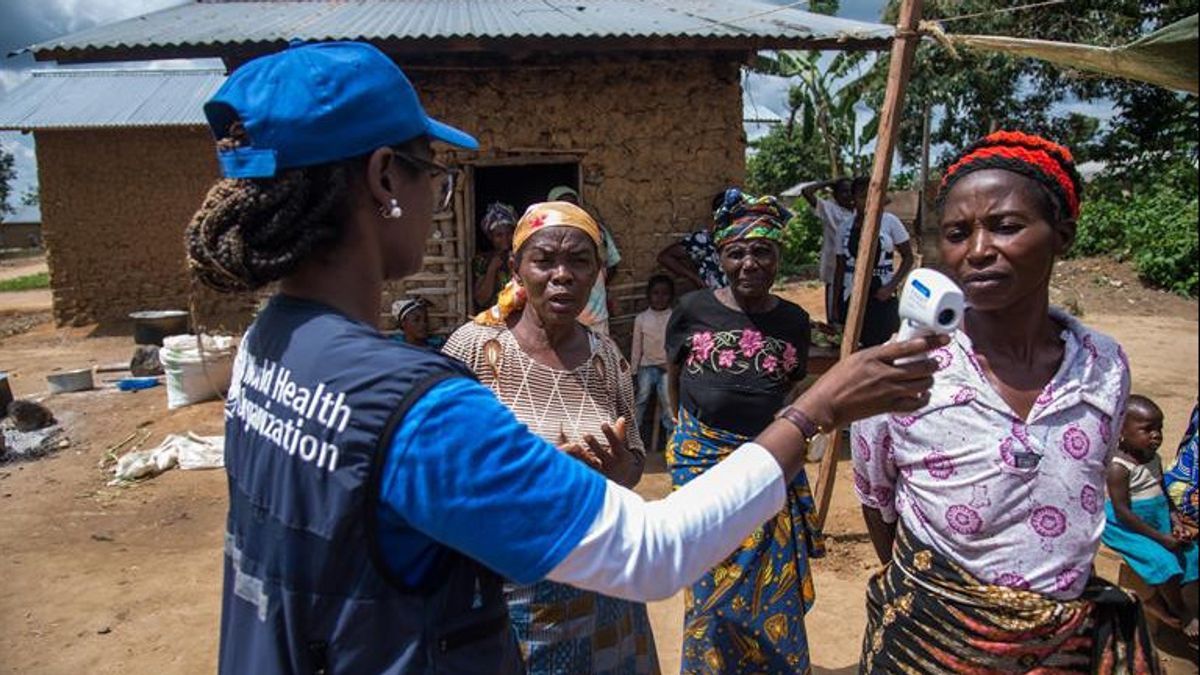JAKARTA - The Democratic Republic of Congo officially announces the end of the eleventh Ebola outbreak. The outbreak ended after the first cases of the deadly virus were reported six months ago.
"It wasn't easy, but we did it!" said Dr. Matshidiso Moeti, World Health Organization Regional Director for Africa. The announcement was made by WHO and the Minister of Health of the Democratic Republic of Congo, Eteni Longondo.
It has been 42 days since the last confirmed case tested negative, according to WHO. No new confirmed cases have been reported since September 28. The eleventh outbreak began on June 1 in Equateur Province, just as another outbreak subsided in the country's east.
The eastern outbreak is the second deadliest Ebola outbreak in the world and was officially declared over June 25. But by then the plague in Equateur was just beginning.
Quoting CNN, Thursday, November 19, when the outbreak in Equateur ended there were 130 confirmed cases, 75 people had recovered and 55 people died. The two outbreaks are geographically far apart. Genetic sequencing analysis confirmed that the two were not related.
The Ebola outbreak in Equateur poses a massive logistical challenge for health workers and aid from WHO, local groups and government agencies. Not only did it come amid the COVID-19 pandemic or when resources were running out, but the outbreak also occurred in communities living in dense rainforests and remote villages.
Some areas with high infection rates are only accessible by boat or helicopter, making transport and testing of laboratory samples difficult. This situation also delayed the deployment of experts to areas affected by Ebola.
Sometimes workers also face resistance from local communities, the WHO said. Over the years, respondents on the ground have battled extreme community distrust and fear, exacerbated by the burning conflict between militant groups and government forces. Several humanitarian workers were attacked by armed groups.
Against fearHealth workers are trying to counter this fear by visiting local communities to increase their understanding of the Ebola virus. Local health workers and WHO experts visited more than 574,000 households and vaccinated more than 40,000 high-risk people.
Meanwhile, they must comply with COVID-19 restrictions and precautions such as wearing protective gear. The WHO says it is using a new freezer to store the Ebola vaccine at extremely low temperatures for up to a week, allowing medical teams to vaccinate people in communities without electricity.
"Addressing one of the world's most dangerous pathogens in remote and inaccessible communities shows what is possible when science and solidarity come together," said Moeti.
"Handling Ebola in parallel with COVID-19 is not easy, but a lot of the expertise we build in one disease is transferable to another and underlines the importance of investing in emergency preparedness and building local capacity," he concluded.
The English, Chinese, Japanese, Arabic, and French versions are automatically generated by the AI. So there may still be inaccuracies in translating, please always see Indonesian as our main language. (system supported by DigitalSiber.id)










